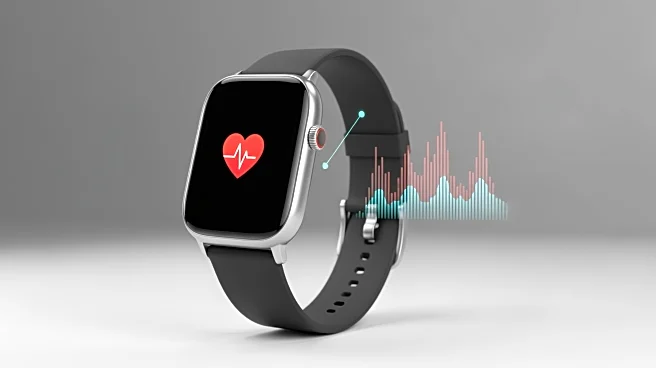What's Happening?
A recent study has demonstrated the ability to predict dropout in home blood pressure monitoring using machine learning models. The research utilized a large dataset from approximately 300,000 users, achieving high accuracy in predicting dropout at 28
and 56 days based on a 2-week measurement pattern. The study found that factors such as fewer measurement days, shorter duration from initial measurement, and extreme systolic blood pressure (SBP) values increased dropout risk. The model's robustness was confirmed as interventions like push notifications did not affect prediction accuracy. The study highlights the potential for early interventions to improve treatment efficacy by predicting dropout and enhancing measurement continuity.
Why It's Important?
The ability to predict dropout in home blood pressure monitoring is significant for healthcare providers aiming to improve patient adherence and treatment outcomes. By identifying high-risk individuals early, targeted interventions can be implemented to prevent discontinuation of monitoring, which is crucial for effective blood pressure management. This approach could lead to better health outcomes and reduced healthcare costs by minimizing complications associated with uncontrolled hypertension. The study also underscores the importance of integrating machine learning in digital health services, potentially transforming patient care and engagement strategies.
What's Next?
Future research may focus on optimizing intervention strategies tailored to specific measurement patterns and evaluating their effectiveness. Additionally, expanding the model's application to other types of health monitoring, such as weight and blood glucose, could further enhance patient adherence across various health metrics. The study suggests the need for further investigation into the generalization of the model across different demographics and regions, as well as the actual effectiveness of interventions based on predictive models.
Beyond the Headlines
The study raises ethical considerations regarding privacy and data usage, as the dataset was limited to users in Japan and lacked information on treatment status. It also highlights the potential psychological impact of high SBP readings on user motivation, suggesting a need for supportive interventions. The findings could influence the development of personalized healthcare strategies, emphasizing the role of machine learning in understanding patient behavior and improving health outcomes.















